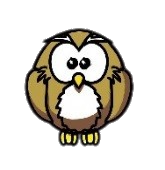
Brisbane Park Infant School
Science
At Brisbane Park we believe that science teaches an understanding of the world around us. It aims to stimulate a child’s curiosity in finding out why things happen in the way they do. It teaches methods of enquiry and investigation to stimulate creative thought. Children learn to ask scientific questions and should be encouraged to understand how science can be used to explain what is occurring, predict how things will behave, and analyse causes on a personal and national level. From September 2023 we will be using KAPOW Science to help us cover all statutory requirements for Primary Science in the National Curriculum, this is also being accessed by EYFS when appropriate to ensure links can be shown.
Intent
EYFS
In the EYFS, science is covered through Understanding the world
Children will:
- know about similarities and differences in relation to places, objects, materials and living things.
- talk about the features of their own immediate environment and how environments might vary from one another.
- make observations of animals and plants and explain why some things occur, and talk about changes.
Year 1 and 2
Children will:
- develop scientific knowledge and conceptual understanding through the specific disciplines of biology, chemistry and physics
- develop understanding of the nature, processes and methods of science through different types of science enquiries that help them to answer scientific questions about the world around them
- be equipped with the scientific knowledge required to understand the uses and implications of science, today and for the future
Implementation
Working Scientifically
EYFS
Children will:
- start to gain the science knowledge that they’ll build on throughout their primary school years
- develop their skills of observation, prediction, critical thinking and discussion
- conduct experiments and explore different methods of discovery
- present their findings
Year 1 and 2
Children will:
- explore the world around them and raise their own questions.
- should experience different types of scientific enquiries, including practical activities, and begin to recognise ways in which they might answer scientific questions.
- should use simple features to compare objects, materials and living things and, with help, decide how to sort and group them, observe changes over time, and, with guidance, they should begin to notice patterns and relationships.
- should ask people questions and use simple secondary sources to find answers.
- should use simple measurements and equipment (for example, hand lenses, egg timers) to gather data, carry out simple tests, record simple data, and talk about what they have found out and how they found it out.
- should record and communicate their findings in a range of ways and begin to use simple scientific language.
- should read and spell scientific vocabulary at a level consistent with their increasing word reading and spelling knowledge at key stage 1.
Impact
- children will understand the relevance of what they are learning in relation to real the world around them
- children will ‘have a go’ and choose the equipment they need to help them to learn along with the strategies they think are best suited to each problem and experiment.
- Children will be able think critically and apply their knowledge
- Children will become passionate scientists and develop oral skills in science lessons through discussions (for example, keeping healthy) and through recounting their observations of scientific experiments.
- They will develop their writing skills through writing reports and projects and by recording information.
- They will develop their mathematical skills by learning to use and apply number through working on investigations and as they learn to weigh, measure, estimate and predict. They develop accuracy in their observation and recording of events. Many of their answers and conclusions include numbers
At the end of each term, staff will assess each science topic area against assessment statements directly onto ScholarPack.
At the end of each Key Stage, the statutory assessment for science is based on teacher assessment, therefore assessments will be recorded appropriately and some examples of work held in curriculum books.
Monitoring consistency across the classes and key stages will be done through: learning walks; planning scrutiny; looking at progression in books; termly data analysis and moderation.